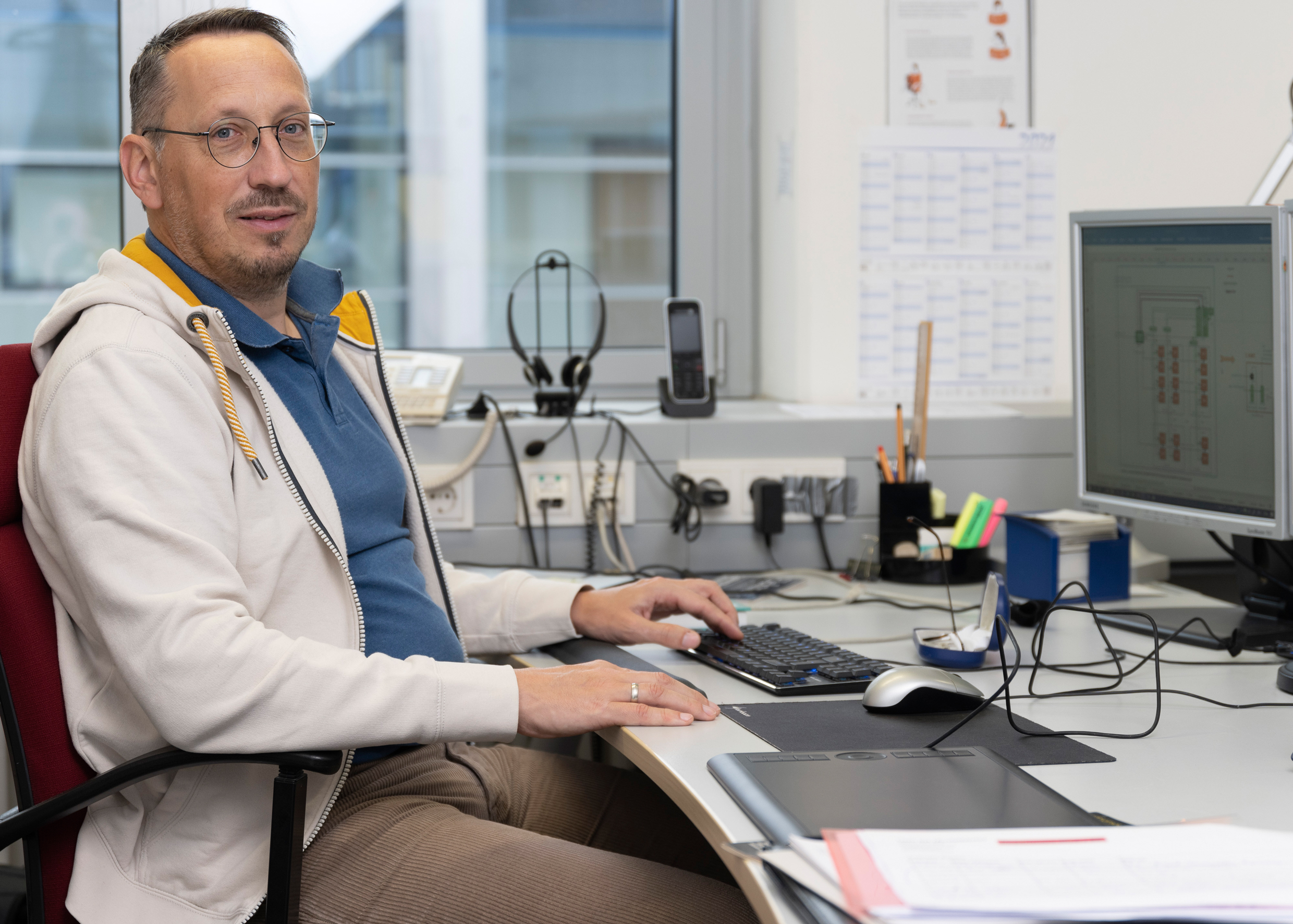Dr. Marco Breiling (51) wants to assist in shaping the future of Germany. The electrical engineer from Erlangen helps get successful high-tech products made in Germany. Inspired by the energy efficiency of a bee’s brain, his team develops clever microchips that process very large data volumes in an energy-saving manner. This achievement impressed the jury of the pilot innovation competition “Energy-Efficient AI System” organized by the German Federal Ministry of Education and Research (BMBF). Here, Marco Breiling gives fascinating insights into his field of research.
We have set ourselves a tough challenge. Although science doesn’t fully understand the nervous system of humans or even of simple animals, our current imperfect knowledge is the foundation upon which we seek to, say, make chips as efficient as the brain of a bee. This is something we haven’t yet achieved. Our chips are still a long way off from the energy efficiency of a bee’s brain, never mind brains as complex as those of other animals. But it’s precisely this challenge that makes our work so interesting!
Thinking big, making the supposedly impossible possible: we dare to try! Take humanity’s dream of flight: I’m motivated by the thought that it was birds that inspired people. Initial attempts had little success, but then people discovered further non-biological mechanisms – and today aircraft are much faster than birds and can carry much more weight.
Making progress toward an ambitious goal – this has often been my personal motivation. For my twelfth birthday, I asked for an electronics kit. I had read that with some add-ons to the basic kit, you could build your own television. But the project didn’t come to fruition: there were just too many expensive extra kits required. When I had expanded my electronics kits for a few years, personal computers came on the market, and soon I was putting my money there. But I still pursued my interest in electronics, just not by buying new sets. Instead, I played around with the existing kits, took part in the “Schüler experimentieren” and “Jugend forscht” contests for children and youth interested in STEM subjects, recreated circuits from electronics magazines, and later took part in the “Bundeswettbewerb Informatik” IT contest.
This was what inspired my interest in electrical engineering, which I went on to study in Karlsruhe. What motivated me back then was the prospect of a few semesters abroad, and I took full advantage of the opportunity. I studied in Trondheim, Paris and Southampton, all of which were inspiring and enriching experiences. I then went to Erlangen for my doctorate.
